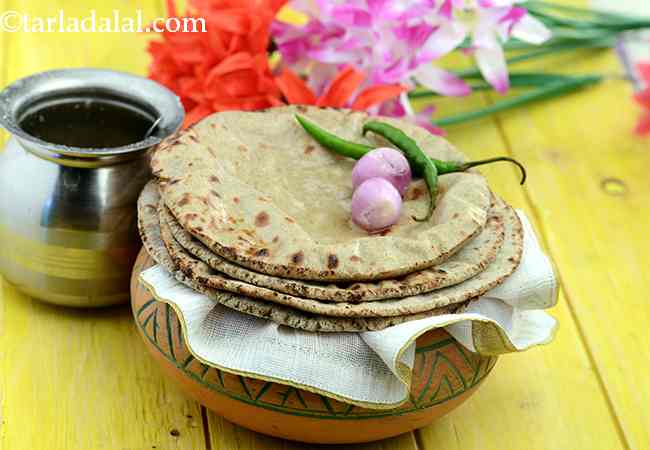Dal Kabila recipe serves 4.
204 calories for 1 serving of Dal Kabila, Diabetic Recipe, Cholesterol 0 mg, Carbohydrates 33.3g, Protein 13g, Fat 2.1g. Find how much fibre, iron, calcium, zinc, magnesium, phosphorus, sodium, potassium, folic acid is present in Dal Kabila, Diabetic Recipe.
See dal kabila recipe | healthy dal kabila | creamy urad ki dal | with 35 amazing images
A healthy dal kabila which has a lot of nutritional benefits. Learn how to make dal kabila recipe | healthy dal kabila | creamy urad ki dal |
dal kabila is Mughal dal which is filled with protein and enriched with the flavor of spices. Urad dal is highly nutritious dal which contains good amount of fiber in it. It is also a good source of protein.
This mouth-watering creamy urad ki dal is high in protein, iron, folic acid and zinc, none can deny the nutrient value of this dish! such as this one. dal kabilais a perfect combination to have with rice or parathas.
Tips to make dal kabila: 1. Dal tends to thicken as it cools down, add water to adjust consistency and re-heat. 2. You can also add curry leaves to make dal. 3. Serve Dal Kabila hot with roti, rice or paratha of your choice.
Is Dal Kabila healthy?
Yes.
Let's understand the Ingredients.
What's good.
Urad Dal : 1 cup of cooked urad dal gives 69.30% of your daily requirement of folic acid. The folic acid in urad dal helps your body to produce and maintain new cells, especially red blood cells. Being rich in Phosphorus it works with Calcium to build our bones. It is also high in fibre and good for heart, good for lowering cholesterol and good for diabetes. See here for 10 super benefits of urad dal.
Tomatoes ( Cherry tomatoes, Yellow tomatoes ) : Tomatoes are extremely rich source of Lycopene. Tomatoes are a powerful antioxidant, super rich in Vitamin C, good for heart. Tomatoes are a Pregnant woman's friend and are rich in Folate or Folic Acid which helps your body to produce and maintain new cells, especially red blood cells. Read about 13 amazing benefits of tomatoes.
Coriander (kothmir, dhania) : Coriander is a fresh herb often used as a flavour enhancer in Indian cooking. It is mainly used as a garnish. This is the best way to use it - no cooking. This preserves its vitamin C content which helps to build our immunity and bring that sparkle to the skin. The antioxidants vitamin A, vitamin C and the quercetin present in coriander works towards strengthening our immune system. Coriander is a fairly good source of iron and folate – the 2 nutrients which help in the production and maintenance of red blood cells in our blood. Good for reducing cholesterol and good for diabetics. Read 9 benefits of coriander to understand details.
Can diabetics, heart patients and over weight individuals have Dal Kabila ?
Yes. 1 cup of cooked urad dal gives 69.30% of folic acid of your daily requirement of folate. The folic acid in urad dal helps your body to produce and maintain new cells, especially red blood cells.
Can healthy individuals have Dal Kabila?
Yes, this is healthy.
DAL + ROTI (cereal) enhances protein value
Combine Dal Kabila with bajra roti, jowar roti, radish nachni roti recipe , basic ragi roti recipe or whole wheat roti, whole wheat bhakri recipe to make a healthy combination. Note that when you combine any dal with any cereal like bajra, jowar, ragi, buckwheat, barley or whole wheat to enhance the protein value.

Bajra Roti
Dal Kabila is rich in below macronutrients, vitamins and minerals given in descending order (highest to lowest).
- Folic Acid (Vitamin B9): Folic acid is an essential vitamin required throughout pregnancy. Folic acid rich Indian foods (kabuli chana, chana dal, yellow moong dal, urad dal, tooval dal, til ). 41% of RDA.
- Phosphorus : Phosphorus rich Indian foods works closely with calcium to build bones. Phosphorus rich Indian foods like dairy products ( milk, paneer, curd), nuts, seeds, jowar, bajra, moong, matki, oats, ragi, wheat flour etc. 35% of RDA.
- Vitamin C : Vitamin C is a great defence against coughs and colds. Have citrus fruits, lemons, vegetables ( capsicum, broccoli, cabbage). Not all of the vitamin C is lost when vegetables are cooked. Some studies have shown that up to 50% of the vitamin C can be retained, depending on the cooking method and the vegetable. Cook vegetables quickly. The longer vegetables are cooked, the more vitamin C they will lose. 31% of RDA.
- Vitamin B1 (Thiamine) : Vitamin B1 protects nerves, helps in carbohydrate metabolism, prevents heart diseases and helps produce red blood cells. Indian Foods rich in B1 are Flax seeds (alsi), Sunflower seeds, Sesame seeds, Garden cress seeds (halim), Capsicum, Wheat flour, Chana dal, moong, walnuts, masoor dal, brown rice, jowar, bajra. 30% of RDA.
- Fiber : Dietary fiber reduces the risk of heart disease, prevents the spike in blood sugar levels and hence super for diabetics. Consume more fruits, vegetables, moong, oats, matki, whole grains. 28% of RDA.
- Protein : Protein is required for managing the wear and tear of all cells of the body. Have protein rich Indian foods like paneer, curd, Greek yoghurt, tofu, almonds, sprouts, chana, rajma, chick peas, quinoa, buckwheat ). 24% of RDA.
- Vitamin B2 (riboflavin) : Vitamin B2 enables the production of red blood cells that contribute to the rise in your energy levels. So have more milk, curds, eggs and green leafy vegetables. 18% of RDA.